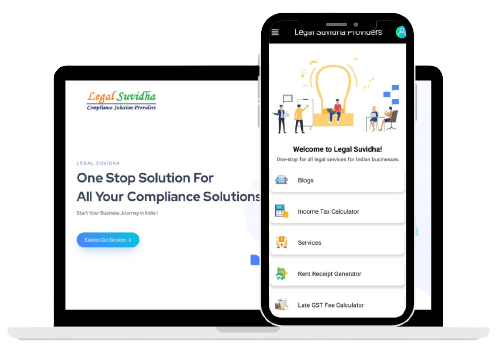ISO 27001: Information Security Management
ISO 27001: Information Security Management – A Simple Guide In today’s digital world, keeping sensitive information safe is more important...
A founders’ agreement is a legal contract between the founders of a company that outlines the terms and conditions of their business relationship. It typically covers key issues such as ownership, roles and responsibilities, decision-making, intellectual property, and exit strategies.

Happy Clients
Years Experience

Happy Clients
Years Experience
A founders agreement is a legal contract between co-founders that outlines their roles, responsibilities, ownership, and investment proportion when starting a business. It’s important to have this agreement in writing rather than verbally agreed upon. All co-founders must agree to the terms when incorporating the company.
The purpose of a founders agreement is to prevent future disputes among co-founders by establishing clear guidelines and strategies for them to follow. It can also address unforeseen events, such as the death or resignation of a co-founder, which could impact the business.
| Establishing the Business Entity | The founders agreement outlines the type of business entity to be established by the co-founders, setting the direction for the company |
| Outlining Business Plans | This agreement describes the vision, mission, and goals of the entity, which helps co-founders work towards a common goal |
| Designating Roles and Responsibilities | A founders agreement assigns roles and responsibilities to each co-founder, helping avoid overlapping roles and potential conflicts |
| Structuring Ownership | The agreement specifies the structure of ownership, outlining the percentage of equity shares held by each co-founder, which helps avoid future conflicts |
| Decision Making Process | The agreement provides a procedure for handling ideological conflicts between co-founders and outlines the voting system, defining the value of votes for each founder |
| Compensation Provisions | The agreement outlines the scheme of compensation to be made in case a co-founder violates the provisions mandated, which ensures fairness among co-founders |
| Expulsion of Co-founders | The agreement provides a structure for dealing with co-founders who engage in fraudulent activities and outlines the process for reverting appropriate funds |
Drafting a founders agreement can be a complex process, but with the right guidance, it can be simplified. Here’s a step-by-step guide to help you draft a founders agreement using legal suvidha:
Step 1: Prepare the Draft: Create a comprehensive draft of the founders agreement that includes all necessary fields such as company objectives, terms and conditions for co-founders.
Step 2: Review and Revise: Once the draft is complete, review it to ensure all mandatory provisions are included and there are no ambiguous clauses.
Step 3: Add Additional Information: Add any additional information or provisions that may be necessary.
Step 4: Obtain Acknowledgement: Once the final draft is complete, ensure all co-founders acknowledge and accept the agreement.
Step 5: Notarize the Agreement: Notarize the agreement on a non-judicial stamp paper to make it legally binding.
Step 6: Obtain Signatures: Obtain signatures from all co-founders on the agreement.
Step 7: Seek Expert Guidance: Before finalizing the agreement, seek expert guidance to avoid disputes and ensure all provisions are legally sound.
1. Address proof of all co-founders
2. Identity proof of all co-founders
3. Identity proof of witnesses
4. A clear objective of the company
5. The number of equity shares of each co-founder
6. The overall percentage of shares of each co-founder
A founders’ agreement is a legally enforceable document that describes the obligations and rights of each owner of a company. It is often in writing. It could be a separate document or it could be included in a partnership agreement, an LLC operating agreement, or corporation bylaws.
A shareholder’s agreement, which is used by corporations, is comparable to the operational agreement, which is what limited liability firms use. The founding agreement is more private to the particular founders, but the operational agreement is more about corporate governance and good business practise.
The co-founder of the company must operate within the boundaries set forth in the Founder’s Agreement. This document also guarantees that a co-founder will remain dedicated to the business and won’t pursue other jobs.
To distribute a startup, two or more people frequently work together. A co-founders agreement is one of the many formalities that must be finished before a firm may launch. Startup founders should not skip this stage because it will protect them if things do not turn out as expected.
#answer
#answer
#answer
#answer
With a commitment to exceeding expectations and a passion for delivering results, choosing us means choosing a partner dedicated to your success.

We provide free of cost consultation and legal advice to our clients.

We are a team of more than 15+ professionals with 11 years of experience.


All our services are online no need you to travel from your place.

There are no hidden & extra charges* other than the quote/invoice we provide.

We aim that all our customers are fully satisfied with our services.

We value your time and we promise all our services are delivered on time.

We provide free of cost consultation and legal advice to our clients.
In this Journey of the past 14+ years, we had gained the trust of many startups, businesses, and professionals in India and stand with a 4.9/5 rating in google reviews.We register business online and save time & paperwork.
Trustindex verifies that the original source of the review is Google. Mayank & the Legal Suvidha team are fantastic. They really try to understand the business like insiders and don't give you templatized solutions. The staff are extremely supportive and go out of their way to help you. I would recommend Mayank to anybody new to the startup ecosystem!Trustindex verifies that the original source of the review is Google. Great experience with smooth process during the startup india registration Excellent coordination and teamwork with effective implementation in very limited timeTrustindex verifies that the original source of the review is Google. Sound expertise, good coordination, efficient and timely execution.Trustindex verifies that the original source of the review is Google. Good service and very helpfulTrustindex verifies that the original source of the review is Google. We had a great experience working with the LegalSuvidha team - we have used them for both our Pvt Ltd and LLP formation and their team has been very proactive, knowledgeable, prompt and helpful. They helped with all DSCs as well and couriered them to us. Very professional and thorough. We also got our Startup India , MSME registrations through them promptly. Overall highly recommended. Special callout to Nidhi, Saloni, Anjalin, Shreya and Priyanka for promptly helping us throughout the process.Trustindex verifies that the original source of the review is Google. I am writing to thank you for the quality of service provided by your company. We sincerely appreciate your efficient, gracious customer service, the level of detail and accountability you have demonstrated and the way you conduct business as a whole. A special Thanks to Ms Saloni for her great help throughout.Verified by TrustindexTrustindex verified badge is the Universal Symbol of Trust. Only the greatest companies can get the verified badge who has a review score above 4.5, based on customer reviews over the past 12 months. Read more


Explore more of our blogs to have better clarity and understanding
of the latest corporate & business updates.
ISO 27001: Information Security Management – A Simple Guide In today’s digital world, keeping sensitive information safe is more important...
Operating an online store comes with numerous benefits—but also regulatory obligations. Securing the right licenses and permits is essential to...
Directors shape a company’s governance and strategic direction. Among board members, Executive Directors and Non‑Executive Directors (NEDs) play distinct yet...
The Articles of Association (AOA) form the backbone of a company’s internal governance, setting out the rules, rights, and responsibilities...
Selecting the optimal legal form is a critical decision when launching your U.S. venture. Both LLCs and Corporations offer liability...
Expanding your U.S.-based business into India unlocks access to a vast consumer market, a skilled workforce, and cost advantages—but also...
Here are some answers to potential questions that may arise as you start your business.
Register your business, obtain necessary licenses, and fulfill tax obligations.
Consider factors like ownership, liability, and tax implications to choose from options like sole proprietorship, partnership, or company registration.
Choose a unique business name, obtain required IDs like Director Identification Number (DIN), and file incorporation documents with the Registrar of Companies (ROC).
Obtain GST registration, trade licenses, and any industry-specific permits required to operate legally.
Maintain accurate financial records, file tax returns on time, and adhere to the tax laws applicable to your business.
Yes, startups in India can benefit from various government schemes offering tax exemptions, funding support, and incubation facilities.
Secure patents, trademarks, or copyrights to safeguard your intellectual assets from infringement or unauthorized use.
Challenges include navigating bureaucratic hurdles, complying with complex regulations, and competing in a crowded marketplace.
Looking For More Information? Contact Us
Sign up to receive email updates on new product announcements, special promotions, sales & more.
Redefining the experience of legal services. Now all Professional Services in a Single Click !


Copyright © 2025 Legal Suvidha Providers LLP. All rights reserved.
